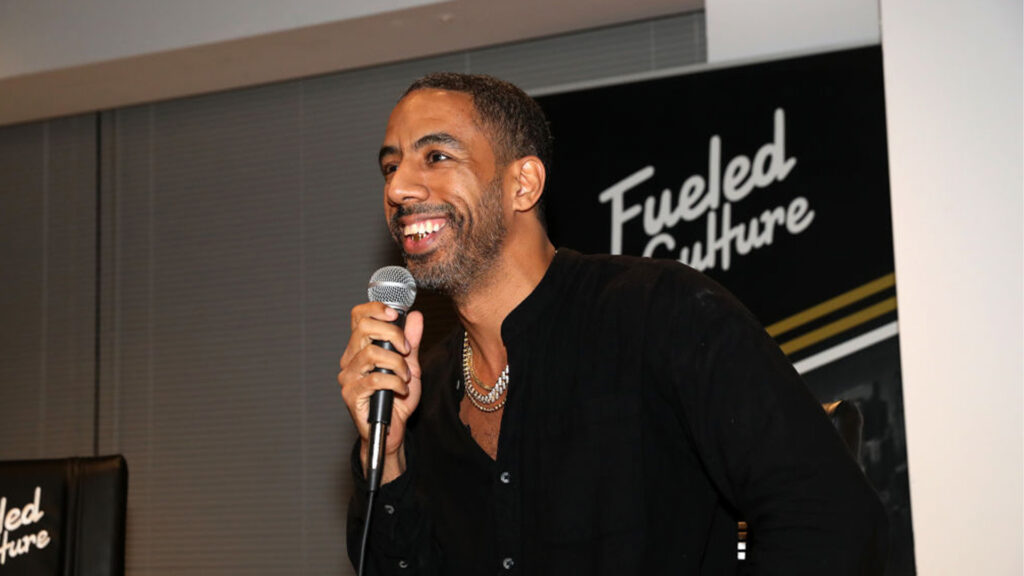In the landscape of modern music and technology, few individuals embody the intersection of intellect and artistry quite like Ryan Leslie. He is a genuine prodigy who graduated from Harvard University at 19, a Grammy-nominated R&B artist and producer who crafted the sound of the mid-2000s, and a pioneering tech founder who is actively reshaping the relationship between creators and their fans.
With a net worth estimated at $9 million, Ryan Leslie’s fortune tells the story of a dynamic, three-act career. It’s a narrative of constant reinvention, from his initial success as the behind-the-scenes architect of hits for other artists, to his acclaimed work as a solo performer, and finally, to his current role as a visionary entrepreneur. His journey was profoundly shaped by a catastrophic event—the theft of his intellectual property—that forced him to abandon the traditional music industry model and build a new one from the ground up.
This is not just a story about a musician who made money; it’s about a brilliant strategist who understood the business, mastered the art, and when the old system failed him, engineered a new one.

The Prodigy – From Harvard Yard to the Recording Studio
Ryan Leslie’s story begins with an intellectual foundation that is virtually unheard of in the music industry. Born in Washington, D.C., to parents who were Salvation Army officers, he grew up in a household that valued both discipline and service. He was a gifted child with a perfect score on his SATs, and his academic prowess led him to enroll at Harvard University at the astonishing age of 15.
While at one of the world’s most prestigious institutions, he didn’t study music; he majored in Government, with a focus on political science and macroeconomics. He was on a path toward a career in politics or law. But alongside his rigorous academic schedule, he was nurturing his true passion. He immersed himself in the university’s music department, joining the Krokodiloes, Harvard’s famous a cappella group, and spending countless hours in the campus recording studios, teaching himself music production.
He developed a unique and powerful dual skill set: the analytical mind of a Harvard-educated strategist and the creative soul of a musician. He created a business plan that detailed how he could graduate in just three years, arguing to the university board that it would save him a year’s tuition, which he could then invest into recording equipment. They agreed. Leslie graduated at the age of 19, turning down a promising future in politics to pursue his risky but passionate dream of a career in music. This unique combination of raw intelligence and artistic talent would become the defining characteristic of his entire professional life.
The Architect of Hits – Building NextSelection
After a series of internships, including one with producer Younglord, Leslie founded his own media company, NextSelection Lifestyle Group, in 2003. His business model was to act as a full-service music production and artist development house, and he quickly established himself as a formidable talent behind the scenes. He wrote, produced, and arranged music for a variety of artists, honing the smooth, sophisticated R&B sound that would become his trademark.
His life-changing breakthrough came when he discovered a young model named Cassie Ventura. Leslie saw her potential, signed her to NextSelection, and wrote and produced her debut single, “Me & U.” The song, with its minimalist beat and hypnotic melody, was a viral sensation on MySpace before it ever hit the radio. It became one of the biggest songs of 2006, peaking at #3 on the Billboard Hot 100. The success of “Me & U” was a massive financial windfall for Leslie; as the songwriter, producer, and the person who discovered the artist, he profited from every angle. It instantly established him as an A-list producer.
During this period, he became a go-to hitmaker, crafting tracks for a roster of major artists, including:
- Britney Spears
- Mary J. Blige
- Usher
- New Edition
This era was the foundation of his wealth. The production fees, publishing royalties, and the success of his own media company provided him with the financial security and industry credibility to launch the next phase of his career: stepping into the spotlight himself.

The Artist in the Spotlight – A Solo Career
Having proven his genius behind the console, Ryan Leslie was ready to become the frontman. He was a multi-instrumentalist, a talented vocalist, and a charismatic performer, and he began releasing his own music, serving as the writer, producer, and primary performer on nearly every track.
His self-titled debut album, Ryan Leslie (2009), introduced the world to his signature sound and produced the hits “Diamond Girl” and “Addiction.” He followed it up with the critically acclaimed album “Transition” (2009), a deeply personal and musically complex project that earned him a Grammy nomination for Best Contemporary R&B Album.
His solo career solidified his reputation as a true “musician’s musician.” He was known for his energetic live shows, where he would seamlessly move between singing, playing the piano, and triggering beats on an MPC. He often documented his entire creative process online, sharing “making of” videos that revealed his meticulous, almost obsessive, approach to building a song layer by layer. While he didn’t achieve the same level of chart dominance as the artists he produced for, his solo work was a critical success that provided him with a loyal fanbase and a steady income from album sales, streaming, and touring.
The Million-Dollar Mistake – The Stolen Laptop and a Career Pivot
In October 2010, while on tour in Cologne, Germany, a catastrophic event occurred that would irrevocably alter the course of Ryan Leslie’s career. His backpack, containing his laptop, external hard drives, and money, was stolen. The laptop was more than just a piece of hardware; it was his entire creative vault, containing priceless unreleased music and the production sessions for his upcoming album, Les Is More.
Devastated, Leslie took to social media and offered a $1 million reward for the safe return of his intellectual property, no questions asked. The story went viral. Weeks later, a man in Germany returned the laptop to the police. However, upon inspecting the hard drives, Leslie claimed that the music and production sessions he so desperately needed were corrupted and unusable. Citing this, he refused to pay the reward.
The man who returned the laptop sued, and the case went to a New York court. In 2012, a jury ordered Leslie to pay the full $1 million reward, a judgment that forced him to file for bankruptcy protection. The financial and creative fallout was immense. He had lost his music, and he was now legally on the hook for a million-dollar payment.
This disastrous episode became a profound and painful learning experience. Leslie realized the fundamental flaw in his business model: he had a direct connection with his fans online, but he didn’t own that connection. He was building his audience on platforms like YouTube, Twitter, and Facebook, but those platforms owned the data. If they changed their algorithms or shut down, his relationship with his fans could be severed. The stolen laptop was his property, but his relationship with his audience wasn’t. This realization was the catalyst for his third and most innovative career act.
The Tech Founder – The Genius of SuperPhone
Instead of trying to rebuild his career within the confines of the traditional music industry, Ryan Leslie decided to build a new system altogether. He applied his Harvard-honed intellect to solve the problem he had identified. The result was SuperPhone.
SuperPhone is not a social media platform; it’s a sophisticated software tool—a CRM (Customer Relationship Management) platform—that allows creators to communicate directly with their audience via text message. Here’s the genius behind it:
- Ownership of Data: When a fan texts a creator’s SuperPhone number, the creator now owns that contact information. They are no longer dependent on a third-party social media platform. They have a direct, one-to-one line of communication with their most loyal supporters.
- Intelligent Communication: The platform allows creators to segment their audience based on location, purchasing history, and engagement. This means they can send targeted, personal messages—announcing a concert to fans in a specific city, or offering exclusive merchandise to their top supporters.
- Monetization: It provides a direct path to monetization. Leslie famously demonstrated this by releasing his 2016 album, Black Mozart, directly to his fans via text message, generating hundreds of thousands of dollars in revenue without a record label.
Ryan Leslie had successfully pivoted from being a musician to being a tech founder. SuperPhone became his primary focus, and it has been adopted by a wide range of creators, influencers, and entrepreneurs. This venture has provided him with a scalable and highly profitable new income stream, earning him a reputation as one of the most forward-thinking minds at the intersection of music and technology.

The Ultimate Reinvention
Ryan Leslie’s $9 million net worth is the story of a relentless innovator. He is a rare individual who possesses both the creative talent to make a hit record and the analytical intelligence to build a software company. His career is a powerful lesson in resilience and adaptation.
He built his initial fortune as a master craftsman in the traditional music industry. But when that industry’s model proved fragile, he didn’t complain; he engineered a better one. The loss of his laptop, a potential career-ending disaster, became the very event that unlocked his greatest professional achievement. Ryan Leslie is a model for the 21st-century creative: an artist who didn’t just master the game, but who, when necessary, built a whole new one.

